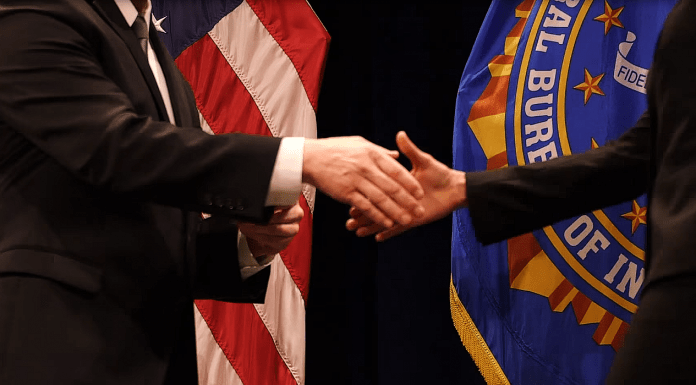(Ken Silva, Headline USA) “He was on our radar.”
It’s a phrase uttered by the FBI in the wake of mass shootings—often enough that an anonymous internet researcher who posts under the handle “Boltzmann Booty” took the time to chronicle just how many times the bureau has monitored, but failed to stop, mass shooters before they go on their sprees.
New substack post compiling instances of prior contact between mass shooters and intelligence or law enforcement agencies. Also goes into detail about a couple of "near-misses" where the FBI pretty obviously attempted to orchestrate mass shootings https://t.co/hnSKTxKO60
— 12 Ball (@BoltzmannBooty) March 28, 2023
Booty’s heavily-sourced research found that this has happened at least 22 times.
Prominent examples of mass shooters who were on the FBI’s “radar” include Sandy Hook shooter Adam Lanza, Orlando Pulse nightclub shooter Omar Mateen and Parkland shooter Nikolas Cruz.
In Lanza’s case, FBI agents had reportedly previously questioned him for hacking computers.
“Years before the Sandy Hook shooting, law enforcement agents visited Lanza’s family home after he hacked into a government computer system in ninth grade, his neighbors told FBI agents investigating the Sandy Hook shooting,” USA Today reported in October 2017, citing FBI records. “Agents then apparently told Nancy Lanza that if her son was that smart, he could have a job with them someday.”
With Orlando shooter Mateen, the FBI reportedly went as far as investigating him in direct relation to possibly being a terrorist threat—twice. “But the F.B.I. soon ended its examination of Mr. Mateen after finding no evidence that he posed a terrorist threat to his community,” the New York Times reported in June 2016.
In his research, Booty noted another anomaly with Mateen: His father was an FBI informant for more than a decade, as was reported by NPR in March 2018.
Then, there’s Parkland. Booty’s research linked to a 2018 New York Times report that “The F.B.I. received a tip last month from someone close to Nikolas Cruz that he owned a gun and had talked of committing a school shooting, the bureau revealed Friday, but it acknowledged that it had failed to investigate.”
Additionally, Booty’s research covers Buffalo shooter Payton Gendron, who reportedly was possibly communicating with a retired federal agent within as little as 30 minutes of his killing spree. Gendron’s possible links to a retired federal agent are more bizarre when coupled with a July 2019 story from the Buffalo News about FBI agents tracking potential mass shooters in the area.
Headline USA sent the FBI questions about its reported investigation into Gendron’s communications with a retired agent, but the bureau declined to comment.
So, what’s going on with the FBI and mass shooters?
Booty theorized that the FBI is playing a “dangerous game” of monitoring potential threats with the goal of catching them right before their shooting sprees.
“Individual federal agents receive adulation and career advancement when they orchestrate plausible-looking attacks and then stop them at the last minute—a dangerous game that can obviously spin out of control quickly,” he said. “Agencies like the FBI benefit directly from the attacks through budget increases and mandate expansions.”
But could it be that the FBI’s surveillance is preventing mass shootings, with a few—or, as Booty found, at least 22—shooters evading the bureau to successfully carry out their attacks?
Booty addressed this point in his research by delving into the 2015 Garland, Texas, case of Elton Simpson and Nadir Soofi, who were stopped by a good guy with a gun before they could kill anyone.
It turned out that Simpson and Soofi were being monitored by the FBI. One agent even reportedly encouraged Simpson to “tear up Texas”—and, remarkably, that same agent was tailing the two shooters all the way up to their shootout.
“The official story from government prosecutors is that the FBI agent simply had no idea that he was in the car behind two would-be mass shooters who the FBI was closely surveilling and who the agent had corresponded with a week beforehand,” Booty noted with a hint of sarcasm.
“He didn’t even know they were in Texas! It was just an unfortunate coincidence that he was following them taking pictures of the man they were about to shoot. He was there for a completely different operation related to a totally different guy. I hate when that happens! Case closed.”
Booty posited that the case of Simpson and Soofi represents a playbook for the FBI—one that would not have been revealed if the Garland shooting were deadlier.
“If Simpson and Soofi had managed to get through and do some serious damage, do you think we would have heard about the FBI connections to the attack?” Booty asked.
“We might have eventually learned about Simpson’s earlier FBI scrutiny—exactly the sort of connection that frequently emerges after more “successful” mass shootings, as you’ll see below—but I’m confident that the actions of the ‘Tear up Texas’ agent would never have seen the light of day.”
Ken Silva is a staff writer at Headline USA. Follow him at twitter.com/jd_cashless.

